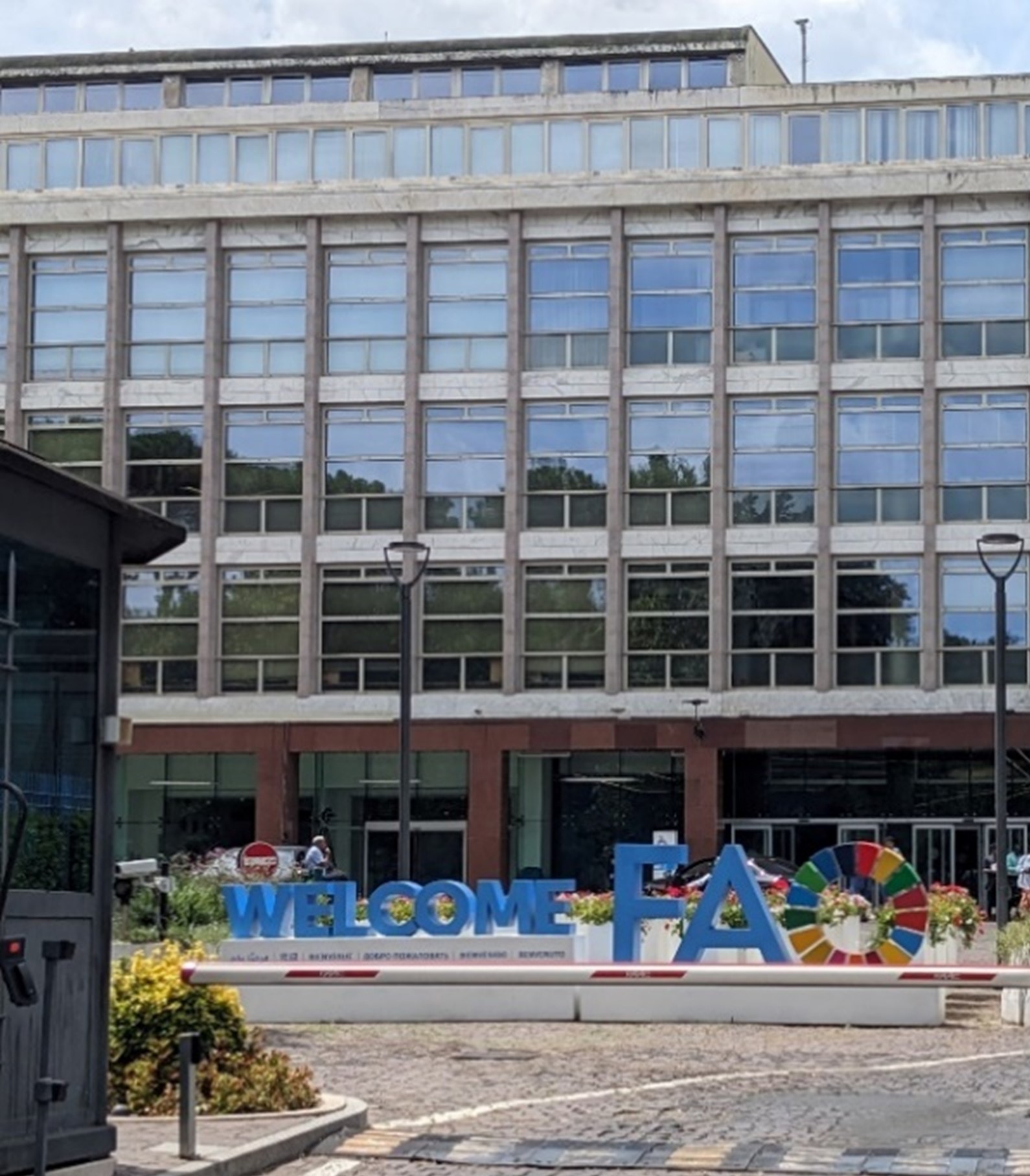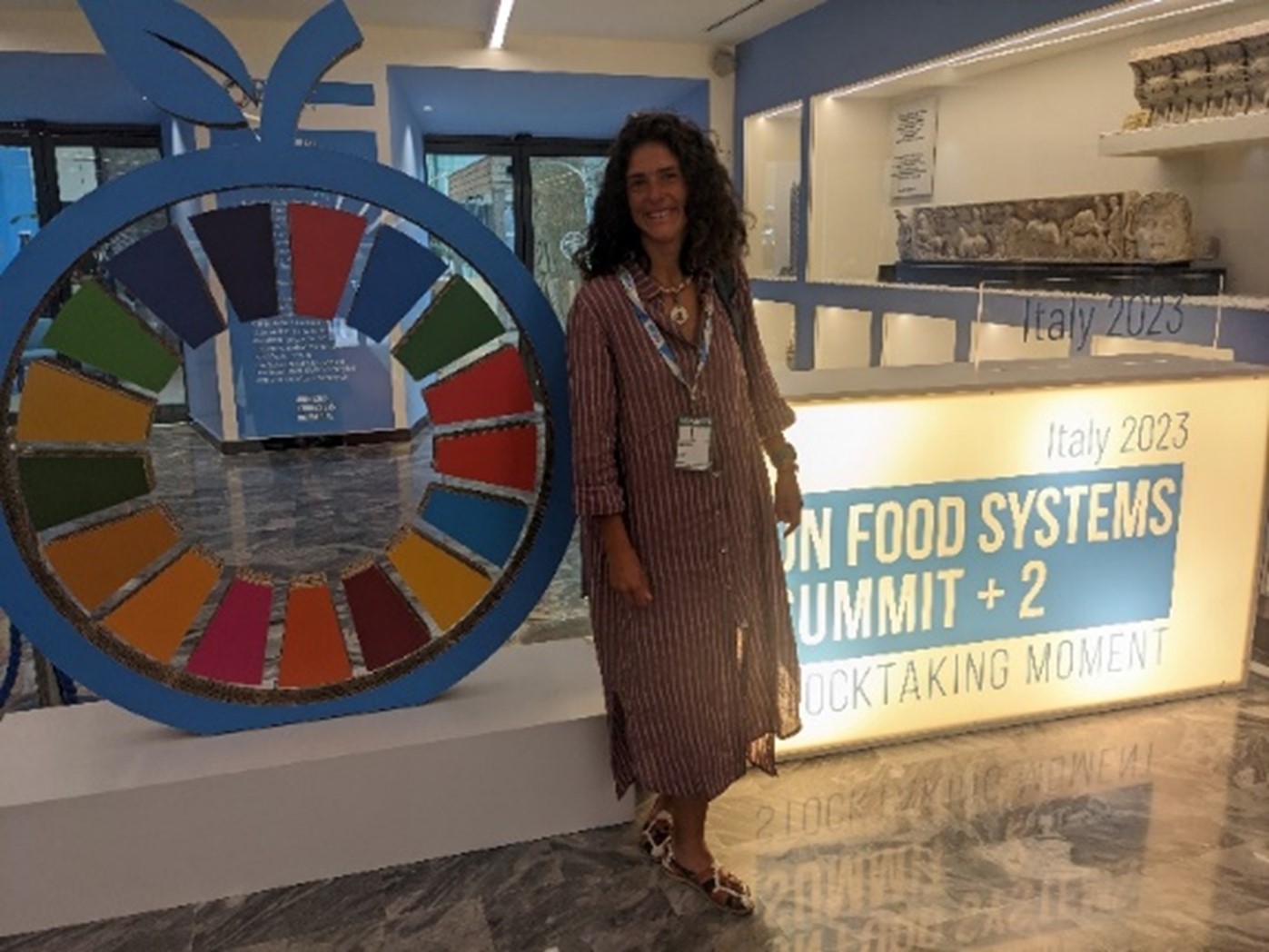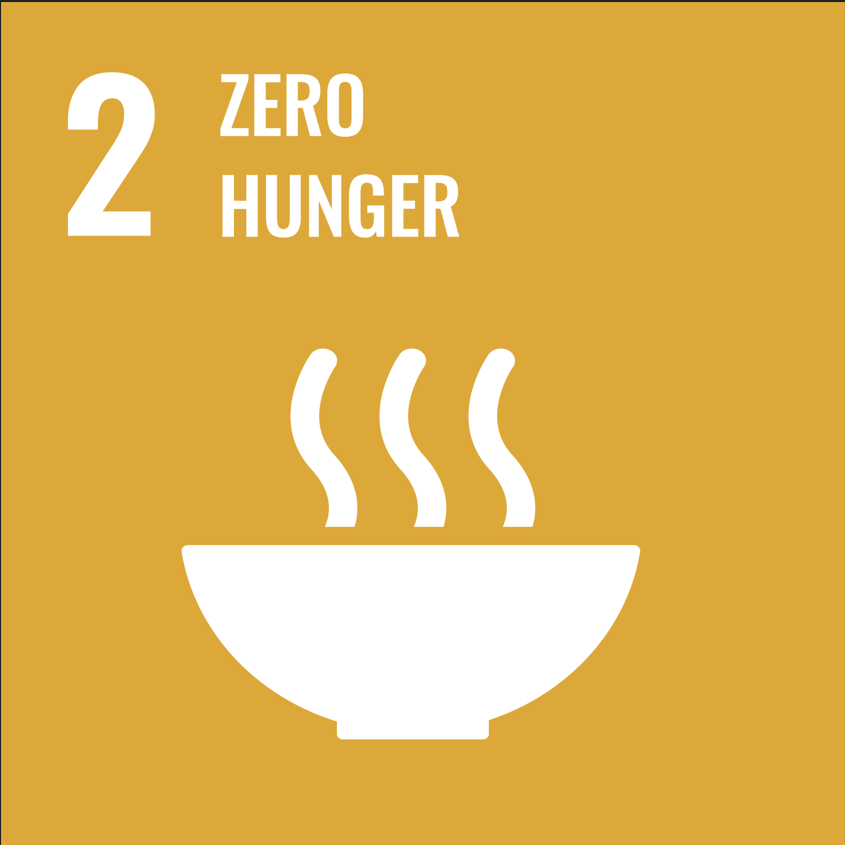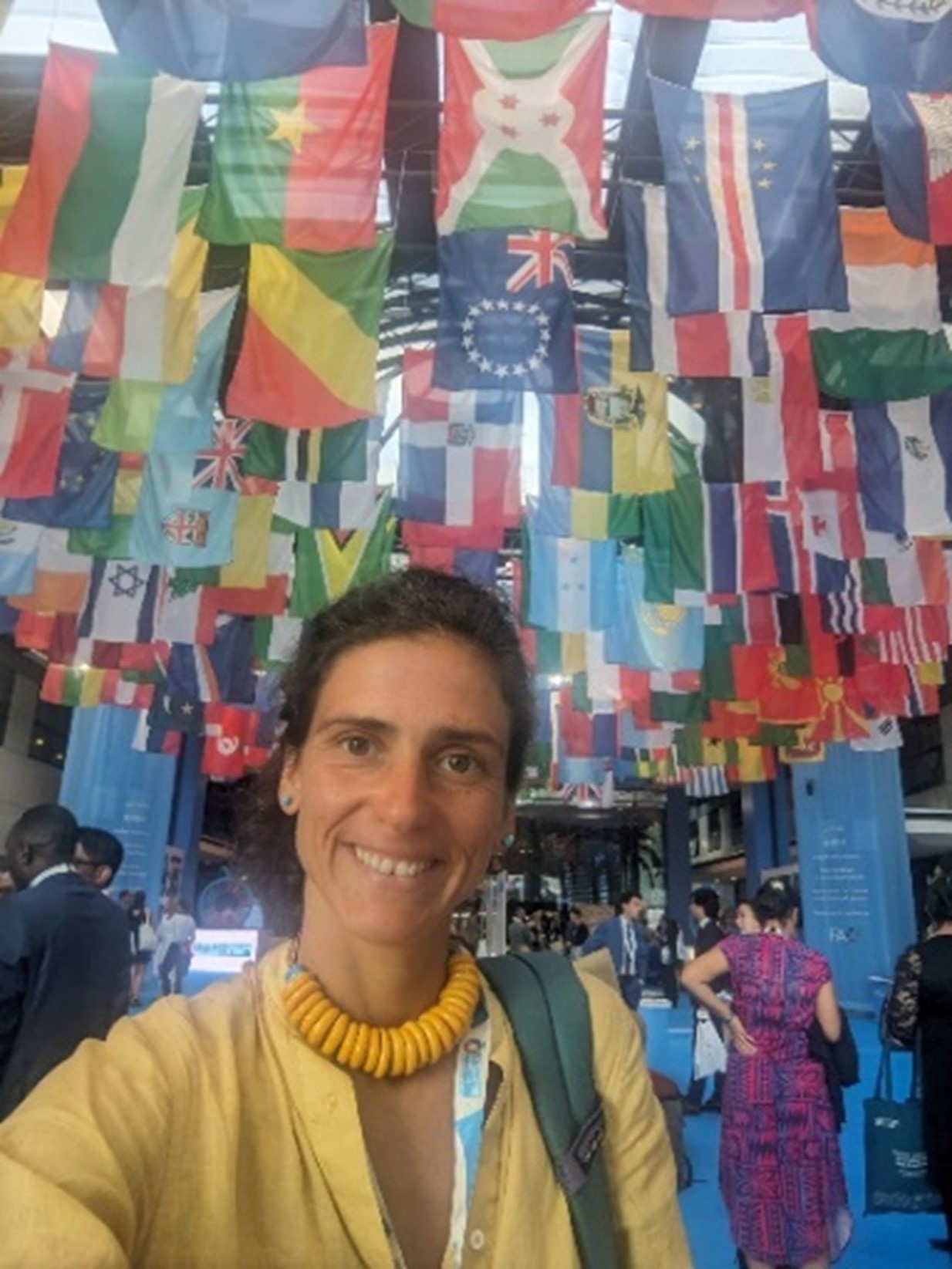The food revolution has begun in Rome! From 24 to 26 July 2023, the headquarters of the Food and Agriculture Organization of the United Nations (FAO) was filled with hope and action at the event UN Food System Summit + Stocktaking Moment.
The Moment

More than 2000 participants from 161 countries, including 22 heads of state and government, joined this epic gathering, along with over 100 ministerial delegates and more than 150 non-state actor organisations. The goal: to transform food systems for a sustainable future. CARTIF, in its commitment to the transformation of the food system and in its role as coordinator of the FUSILLI Project, was present at the UN Food System Summit to follow the latest recommendations and continue designing innovative projects and solutions to help companies, cities and society in this transition towards a sustainable food system.
Although progress has been made since the 2021 Summit, we still face pressing challenges – more than 780 million people suffer from hunger and a third of food goes to waste! But here at UNFSS+2, we refuse to give up.
This event is more than a summit, it is a call to action. It is time to step forward towards inclusive and sustainable food systems! It is saying, the food revolution is underway, and you can be part of it!
Cities role in the transformation
The session, “Harnessing Urbanisation for Food Systems Transformation“, shone with innovative ideas. Urbanisation is a powerful driving force for change in the agri-food system, and cities play a crucial role in shaping the future of food.
How do we achieve a food revolution? By empowering cities to lead the change. Investing in technology and innovative solutions is key to ensuring sustainability – it’s time to choose healthier and more environmentally friendly food options! The future is now. Peru and Morocco are shining examples of successful governance mechanisms. In Peru, governance mechanisms at local and municipal level have been successful in promoting food security and nutrition. More than 20 actions directly related to cities have focused on improving food security and food health well-being. And Morocco, a shining example of harnessing urbanisation for food systems transformation, has focused on becoming greener, localising the Sustainable Development Goals (SDGs), adopting Mediterranean country initiatives and embracing multi-stakeholder actions. These efforts are driving positive change in food systems and fostering sustainability.

Day two
In its message, the summit called for concerted and urgent action in six key areas to achieve the potential of food systems: mainstreaming food strategies into national sustainable development policies, inclusive governance, investment in research and innovation, participatory design and implementation, private sector engagement and access to finance. This was especially highlighted in the different sessions on Day 2.
The second day (25 July 2023) immersed us in the blue transformation of food systems, with global representatives coming together to address the challenges and opportunities surrounding aquatic food systems.
The creation of a Global Action Network for Sustainable Aquatic Food was at the heart of the session. The goal? To monitor and ensure responsible fishing practices, develop infrastructure, improve market access and preserve our marine resources – aquatic food is a treasure trove of nutrients essential for human health and prosperity!
Norway and its commitment to sustainable aquatic food left me in awe. With initiatives to monitor and ensure the sustainability of aquaculture, preserve nutrients and increase fish consumption in marginalised communities, Norway is leading the way to a healthier future in the blue economy!
But it is not only Norway that shines, Indonesia also presented its ambitious Blue Economy Plan 2025-2035. With ample maritime resources, Indonesia aims for inclusive and sustainable growth – aquatic food, rich in protein and with a low carbon footprint, is at the heart of its vision for responsible development!
South Africa and Tanzania also made waves with their visions for a sustainable future. South Africa focused on eradicating hunger and providing nutritious food through the sustainable use of aquatic resources. Meanwhile, Tanzania highlighted the importance of an inclusive and sustainable blue economy, encompassing multiple stages of production, processing and consumption.
The European Union (EU) was not far behind, showing its dedication to the blue agenda and emphasising collaboration between all actors in the food system. The EU is committed to improving infrastructure, livelihoods and connectivity with Africa to achieve a thriving blue economy.
The importance of governance
During the session “Governance for Food System Transformation“, an essential truth was echoed: governance is key to a sustainable future. Inclusion, collaboration and leadership are fundamental to shaping resilient food systems around the world. For example, the Lebanese Parliament highlighted the power of legislation as a catalyst for impactful food initiatives. Ensuring clear roles and responsibilities for all stakeholders is crucial for consensus and effective implementation, reflecting the key role of collaboration, coordination, and communication between stakeholders in changing food systems.
Digitalization
Digitalization took center stage during the session on “Digitalisation for Resilient Food Systems,”. But digitalization without inclusion when talking about food systems wont get us far: rural perspectives must be considered in decision and policy making. For example, empowering famers by means of data platforms can be a powerful tool to gaining valuable and real-time actionable information. Such inclusive practices, transparency, and ensuring access to crucial resources like land and water are pivotal for driving transformative change.
Employment of new technology, data, and digital solutions can act as enablers and drivers of food system transformation. Highlighting artificial intelligence and real-time analytics, the World Economic Forum deemed them as essential components for achieving progress.
Role of the private sector
The private sector represents an important mean of accessing finance for creating resilient and sustainable food system. Indonesia and Switzerland shared their strategies, showing that access to finance and support for private investment are essential to achieve evidence-based policies and sustainability. Private sector involvement shapes resilient food systems through public-private partnerships, responsible investments, and collaboration.
Integrating private investment is crucial for achieving Sustainable Development Goals while prioritizing responsibility and sustainability, as stressed by the German government. However, private investment still needs to be included in a responsible and sustainable manner to ensure progress. For example, the private sector could promote nutrition and prioritize health over mere profitability.
Day Three
Day three was a day full of solutions, challenges and next steps for food systems transformation!
In the first session of the day, experts and stakeholders gathered to discuss “Mobilising Means for Implementing Food Systems Transformation“. Critical aspects for accelerating progress towards more sustainable food systems were explored. The World Bank presented an innovative tool called “REALTIME 3Fs“, designed to financially support small and medium enterprises, farmers and other key actors. This tool addresses five essential pillars – food systems infrastructure, agricultural and value chain development, social protection, climate change and natural resources, and nutrition – ensuring that financial resources reach the most vulnerable sectors and promote holistic transformation.
However, challenges were identified in the financing of food systems, as global Official Development Assistance for food systems decreased in 2021. This raises concerns about the adequacy of funding to drive comprehensive change. This is where the role of the private sector becomes critical, as it is expected to invest in 50% of the achievements of the Sustainable Development Goals (SDGs).
Investment in science, innovation and technology, in addition to strengthening data and monitoring systems, was proposed as key solutions to accelerate transformation. In addition, the importance of trade in addressing global food gaps and meeting SDG2 (Zero Hunger) was highlighted. However, to achieve effective transformation, the need for adequate governance, the participation of all stakeholders and a global financing agenda involving the private sector was emphasised.
Closing session

The UN Food Systems Centre will focus on coordinating inclusive national processes, and the entire UN system will work to enhance coordination and partnerships for real transformation.
In short, transforming food systems is a collective journey towards a sustainable future. Collaboration between countries, organisations and sectors is essential to achieve meaningful change and ensure that no one is left behind. With a focus on sustainability, equity and mutual accountability, we can build more resilient and just food systems for all. The future of food is in our hands!
In conclusion, resilient food systems are within our reach. With a blue transformation of aquatic systems, inclusive governance, digitisation and private sector engagement, we can build a sustainable and equitable future for all.

